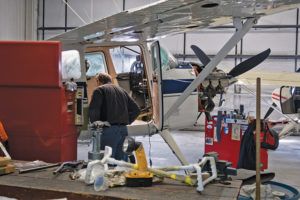
Ed, an aerospace engineer, and Bill, a 14th Century philosopher, walk into your workshop…and if you’re smart you’ll let them stay and you’ll hear them out. They’ll try to support you through your entire project. They’ll offer valuable advice while you fly and maintain the aircraft. And they won’t drink your beer. Well, Bill might. All you have to do to benefit from their presence is heed their repetitious words of wisdom.
Edward Murphy
Edward Murphy was an aerospace engineer on the MX-981 deceleration tests at Muroc Army Air Field (now Edwards Air Force Base). These tests used rocket-powered sleds and water brakes to test the effects of rapid deceleration on humans. The first tests used dummies. Then John Paul Stapp volunteered to be a dummy. I’m stating facts, not passing judgment. It was Murphy’s idea to attach strain gauges to record the forces Stapp experienced during deceleration. The first test failed to deliver data because Murphy’s assistant incorrectly attached the sensor wires. Murphy fumed, “If there’s more than one way to do a job, and one of those ways will result in disaster, then he will do it that way.” His words were distilled to “If something can go wrong, it will.” Murphy’s law was born.
Murphy is, in my opinion, misunderstood. His words should not be considered a pessimistic statement of inevitability; they should be a rally cry that encourages closer attention to detail. We invoke Murphy’s words after a failure when we should embrace them as a precaution. For instance, before drilling holes for fasteners, make sure you have the correct drill bit. Discovering you used a #21 bit instead of a #30 after drilling 200 rivet holes is your failure to confirm, not Murphy stepping in to muck things up. Murphy warned you it could happen. You didn’t listen.
William of Ockham
William of Ockham was a medieval philosopher who couldn’t imagine airplanes being built in garages—for that matter, he couldn’t imagine airplanes—but he knew a thing or two about problem solving. Ockham didn’t invent the idea of seeking the most logical answer to a problem, but he was an ardent practitioner of it and his practice was nothing less than explaining miracles. (And you thought fitting a canopy was difficult?) He is credited with Occam’s razor, “Entities should not be multiplied needlessly.” That was William’s Old World way of saying the simplest answer is most often correct. Thankfully, like the less-than-elegant outburst that gave birth to Murphy’s law, Occam’s razor is distilled from what Ockham most likely said, “Entia non-sunt multiplicanda praeter necessitatem.” He may have been drinking.
Ockham’s words are not a law or a theory, they are a razor. The term means exactly what you think it does, “to shave away.” Focus on the most likely causes of a problem by eliminating—shaving away—the unlikely scenarios. For instance, when an engine stumbles to a stop it is far more likely to have run out of gas than have had two independent ignition systems fail within moments of each other.
Team Players
Murphy and Ockham are valuable team members whether you are building, flying or maintaining your aircraft. Murphy, whose law is rooted in Experimental aviation, reminds us everything must be assured, even the most mundane details. While Murphy encourages us to check everything, Ockham reminds us if things do go wrong it is usually one thing that failed and it is usually the most likely thing that failed. If an engine doesn’t start after a fuel stop it is more likely you (or, ahem, I, in this particular example) failed to turn the fuel valve on than that the engine broke. Murphy anticipated this could happen when I didn’t use my checklist. When it did happen, Ockham wagered I failed to turn on either the fuel valve or the ignition switch. Too often we ignore Murphy, our first line of defense against problems, and have to rely on Ockham’s advice. Ignore Ockham and frustrations rise.
Let’s consider the condition inspection. Condition inspections, unlike repair work that targets a known defect, are meant to find and prevent problems that may be developing. Ironically, condition inspections introduce a heightened possibility of disabling an aircraft. They can disturb the happy existence of functioning parts and sound connections. Example: You replace the functioning, but aging, distributor caps on a Jabiru engine. Your proactive approach is applauded. Murphy, however, rightfully reminds you there may be pitfalls. You may damage or disturb the rotor, loosen or incorrectly replace spark plug wires or install a new-but-defective distributor cap. If the freshly tuned engine stumbles on start-up, Murphy gets blamed with the exclamation, “Now what! I swear, if it can go wrong it does!” Your thoughts may go to stuck valves, incorrect timing and the possibility of having to perform intimidating carburetor adjustments.
Because humans are good at worrying, your thoughts may stray to a broken crank and an expensive engine rebuild. Having ignored Murphy, who tried to warn you to make sure the spark plug wires were reinstalled correctly, you should embrace Ockham. He knows nothing about airplanes but plenty about problem solving. He’ll tell you it is something you touched, not something you didn’t. He’ll assure you nothing broke of its own free will while you were trying to make things better.
Embrace Bill and Ed as partners from the moment you begin building until the moment you sell your airplane. Their wise words can serve us well, though I don’t recommend the Latin version of Occam’s razor as a motivational poster for your workshop.




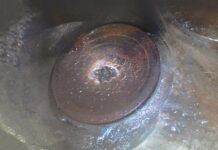


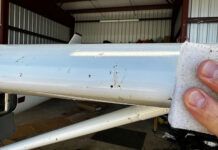

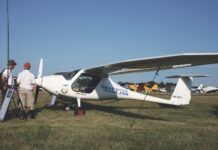
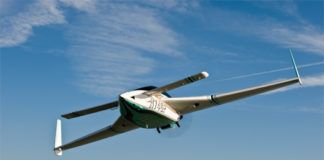
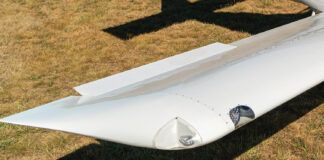
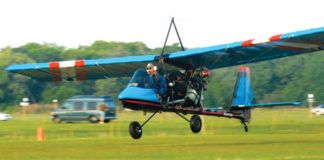
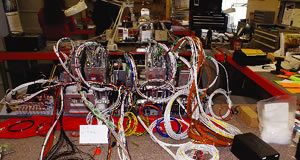
You’re wrong about the location of the deceleration tests that Dr. Stapp made. He may have been based at Muroc, but the tests were done at Holloman Air Force Base. https://airandspace.si.edu/stories/editorial/man-behind-high-speed-safety-standards